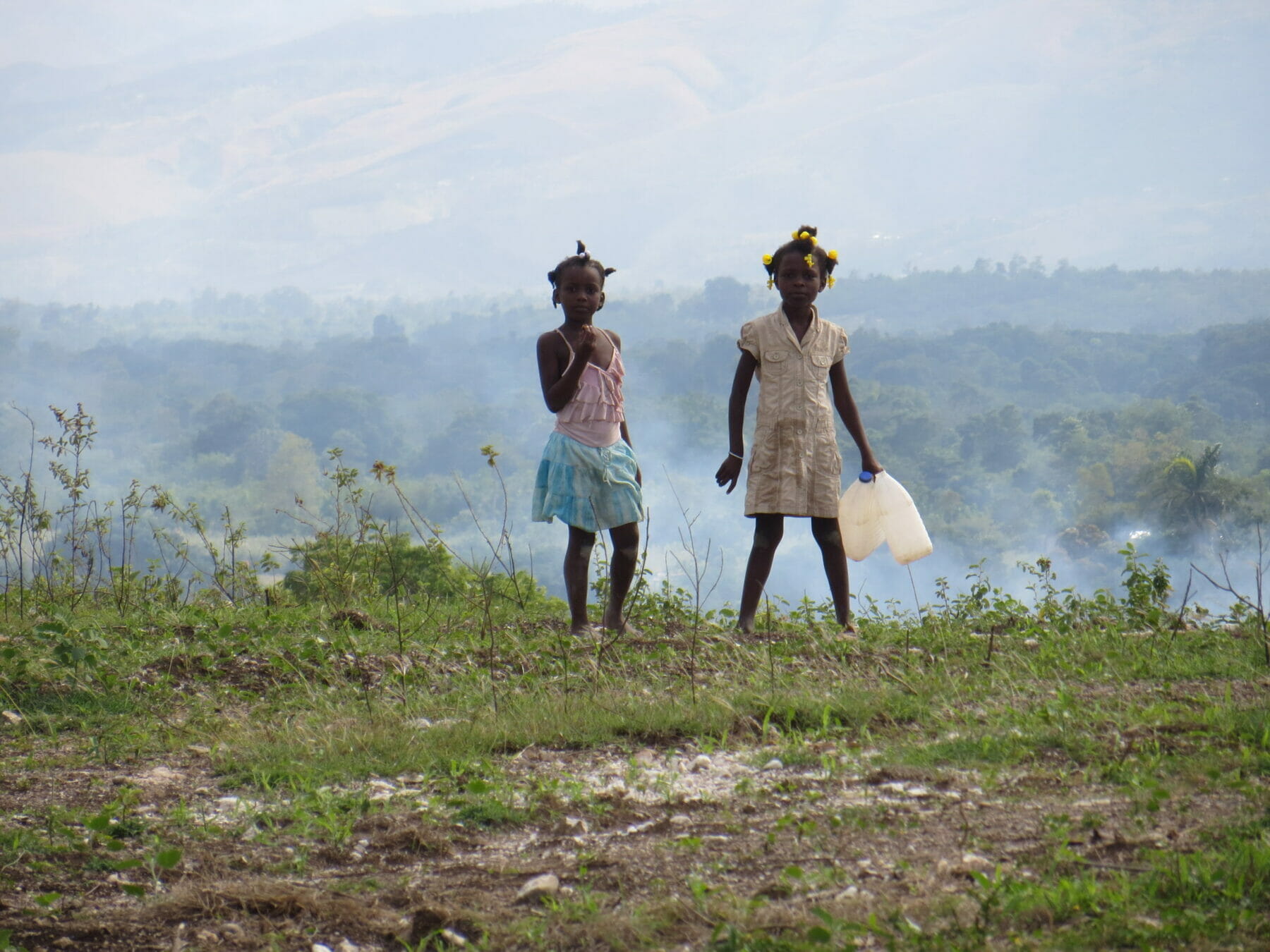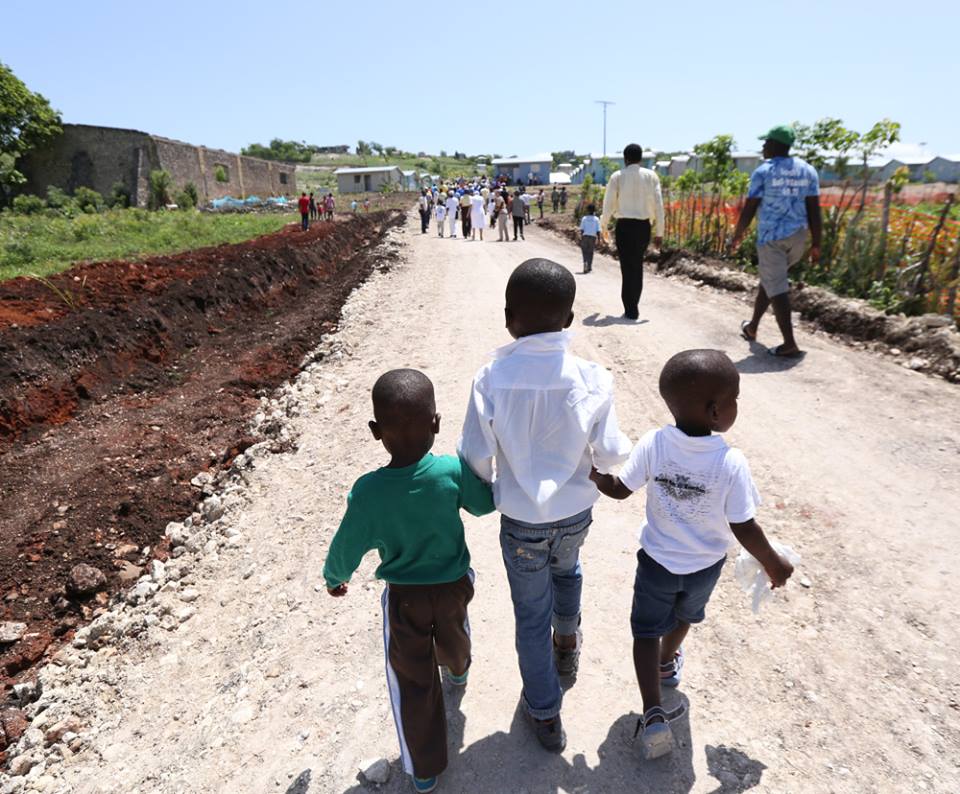
This community of 155 homes, built by generous donors , was in response to desperate pleas from families lingering in limbo due to the border crisis between the Dominican Republic and Haiti.
The border crisis situation is the result of a change in the Dominican Republic’s Constitutional Court in 2013, which removed citizenship from anyone born after 1929 that didn’t have one parent of Dominican blood. The country later decided that those affected could apply for a residency permit, with a deadline of Feb. 1, 2015, but many did not meet that deadline.
Construction of the village began in late fall, after the Haitian government gave Food For The Poor approximately 76 acres in the mountains of Artibonite. The land was used to build homes for 100 families repatriated from the D.R. and for dozens of local Haitian families living in destitute conditions in the region. Last week, 155 pastel color houses dotting the hilltops were officially dedicated.
The new community consists of concrete block houses with flush toilets, showers and water cisterns. Each family received a solar-powered light kit, which is mounted to the roof of each home. The residents soon will receive training in micro-enterprise projects, such as beekeeping, animal husbandry, aquaculture and agriculture. Those who moved into the completed sections of the village last month have planted vegetables gardens and other plants, which are thriving in the fertile soil. Food For The Poor also will provide each family with fruit, shade and moringa trees.

At the heart of the village is a community center that will serve as a place of worship and as a professional training school with workshops. The village has five communal waste-water treatment systems, 20 solar-powered street lamps to provide light and safety. There’s also a marketplace with open-air covered stalls for 50 vendors, an administration building with storage, and a livestock sales site, which includes a slaughtering and butchering area for the sale of the meat. A hen house with 850 egg-laying chickens and an enclosure for 140 goats also have been installed.
Since access to clean water is vital in the prevention of waterborne illnesses, Food For The Poor has established a community reservoir that can store 10,000 gallons of potable water that is accessible via three water kiosks located across the village. This particular system is served by a well with a submersible solar-powered pump. There are also four water wells with hand pumps. A water filtration unit, which can purify and chlorinate up to 10,000 gallons of water a day, also was provided by Water Mission.
Petite Riviere de l’Artibonite
This community of 155 homes was built in response to the border crisis between the Dominican Republic and Haiti.
Year2016CountryHaiti

